Minimalism is more than just an aesthetic choice; it’s a lifestyle emphasizing simplicity and intentionality. In recent years, minimalism has become a popular approach to decluttering not only our possessions but also our schedules and minds.
Minimalism books guide us through the process, presenting the philosophy behind living with less, along with practical advice. These works often draw from key thought leaders who illustrate how to apply minimalist principles in different areas of life, offering insights into tackling the common challenges one might face on the path to a more minimalist lifestyle.
Empowered by the knowledge embedded in minimalist literature, individuals around the world are discovering the numerous benefits of stripping away the non-essential. These minimalism books do not just preach about getting rid of stuff but also invite us to question our values and the very essence of happiness and fulfillment.
They serve as a toolbox for cultural and personal transformation, redefining success and contentment in today’s globalized society. By addressing frequently asked questions and discussing implementation strategies, they offer a blueprint for anyone looking to simplify their existence.
Key Takeaways
- Minimalism books offer guidance on reducing clutter and embracing a simpler, intentional life.
- Literature on minimalism provides strategies for applying minimalist principles across various aspects of living.
- Authors within the minimalism movement explore in there minimalism books cultural shifts and personal transformations towards a minimalist philosophy.
The Philosophy of Minimalism
Minimalism is more than an aesthetic; it’s a philosophy that emphasizes the value of living with less to enjoy more meaningful lives. Below we explore the nuances of this philosophy.
Understanding Minimalism
Minimalism, at its core, revolves around the principle of less is more. By reducing physical possessions and distractions, we create space for focusing on what truly matters. This approach to life encourages us to prioritize experiences and personal growth over material possessions.
Japanese Influence on Minimalism
Japanese minimalism has greatly inspired the western notion of minimalism. It’s grounded in the concepts of Ma (the value of empty space) and Wabi-sabi (the acceptance of imperfection). By incorporating these principles, we aim to find harmony and simplicity in our surroundings.
Minimalism as a Lifestyle
Adopting minimalism as a way of life goes beyond decluttering. It’s about making intentional choices in all aspects of life, from the items we own to the activities we partake in. This conscious living helps us live more purposefully and sustainably.
Art and Aesthetic of Minimalism
Minimalism in art involves using limited materials and color palettes to create impactful work. The aesthetic is about conveying a message or emotion with as few elements as possible, reflecting the minimalist ethos of subtraction for depth.
The Psychology of Decluttering
Psychologically, decluttering can lead to a sense of clarity and improved mental health. When we remove excess from our environments, we reduce cognitive overload and stress, making it easier for us to focus on our goals and well-being.
Practical Aspects of Minimalism
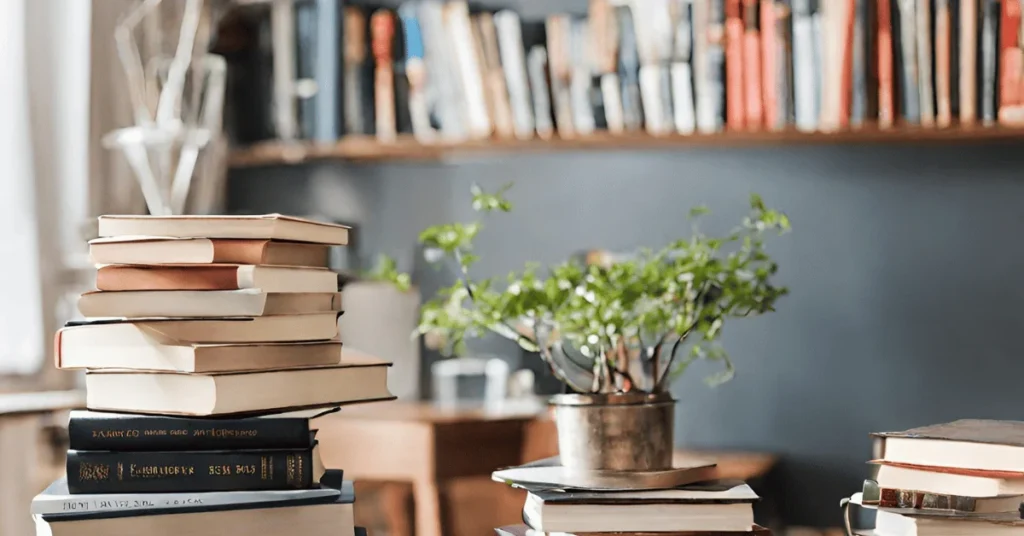
In this section, we focus on how to integrate minimalist practices into various areas of life, from decluttering our surroundings to adopting minimalist design principles that emphasize functionality and simplicity.
Decluttering Your Space
Decluttering involves removing unnecessary items from our physical environments. The process not only clears physical space but can also lead to reduced stress and increased joy. We start by identifying items that we no longer use or need, and then we choose to donate, sell, or discard them responsibly.
- Steps to Declutter:
- Sort items into categories.
- Evaluate each item’s necessity and joy it brings.
- Remove items not aligned with our intentional living goals.
Minimalist Living
Minimalist living is the practice of living with less to enjoy more freedom and clarity in life. We focus on keeping things that serve a purpose or bring joy, and we avoid excessive consumerism. This lifestyle can improve relationships and provide more time and energy for what truly matters to us.
- Key aspects:
- Intentional use of space
- Mindfulness about possessions
- Resisting the urge to accumulate
The Art of Letting Go
Mastering the art of letting go is integral to minimalist living. We learn to detach from possessions that don’t contribute to our wellbeing or align with our values. This practice can be deeply zen and beneficial to our health by fostering an environment that supports our mental and emotional wellbeing.
- Principles of Letting Go:
- Embrace impermanence.
- Recognize the difference between want and need.
Minimalist Design Principles
In terms of minimalist design principles, we highlight functionality, elegance, and simplicity. Designs are stripped to their essential elements, avoiding clutter and focusing on the beauty and utility of each item. Space is considered an important element, allowing each piece to “breathe” and be appreciated.
- Design Elements:
- Clean lines and uncluttered spaces
- Neutral color palettes and simplicity in decoration
Simple Living and Finances
Simple living extends to managing our finances in a way that promotes sustainability and security. We prioritize spending on needs over wants, and we invest in quality items that last longer, reducing the need for frequent replacements. This approach supports alternative choices that often have positive environmental impacts.
- Financial Strategies:
- Budget for value, not quantity.
- Embrace minimalism in spending and save for important goals.
Minimalism Books
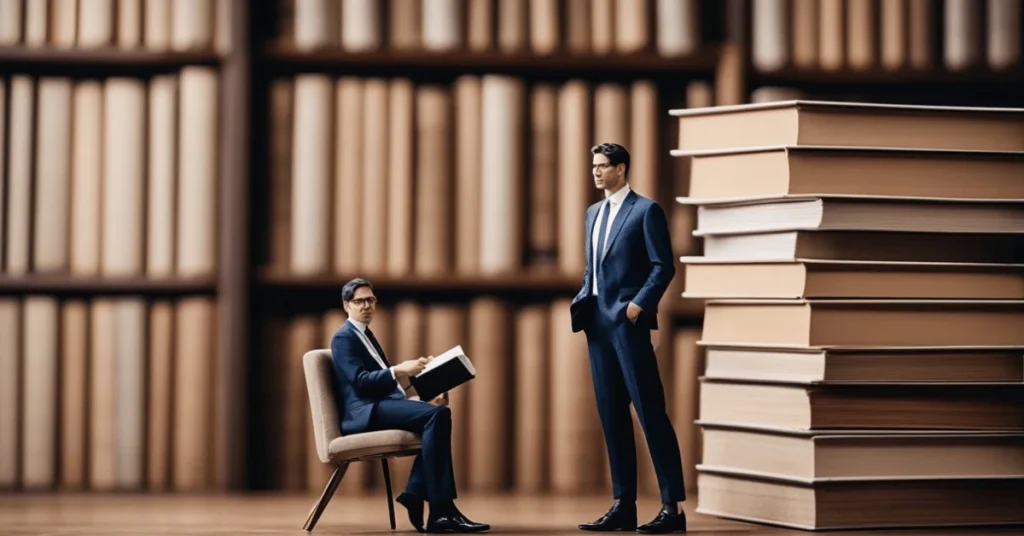
In this section, we explore a curated selection of minimalism books that articulate the minimalist philosophy across various domains. From foundational texts to practical guides on decluttering, these books offer a comprehensive understanding of minimalism.
Essential Minimalism Books
“The More of Less” by Joshua Becker: Becker lays out a persuasive argument for living with fewer possessions to achieve a more fulfilling life. His approach is both practical and philosophical, making it a cornerstone read for those starting their minimalist journey through minimalism books.
“Everything That Remains” by The Minimalists: This compelling memoir by Joshua Fields Millburn and Ryan Nicodemus details their transition from six-figure corporates to leading minimalist lives. It’s an inspiring narrative on the power and personal growth that comes from living with less.
Innovative Voices in Minimalism Books
“Essentialism: The Disciplined Pursuit of Less” by Greg McKeown: McKeown’s book isn’t strictly about minimalism in terms of possessions but is a crucial read for understanding how to apply minimalist philosophy in decision-making and prioritizing what’s truly essential in all aspects of life.
“The Joy of Missing Out” by Tonya Dalton: Dalton challenges the status quo of a busy life cluttered with commitments. Her book is a guide to productivity through focusing on what matters most, which resonates with the foundations of minimalist thought and minimalism books.
Minimalism Books on Decluttering and Organizing
- “The Life-Changing Magic of Tidying Up” by Marie Kondo: Kondo’s method encourages keeping only those items that “spark joy”. This book has revolutionized the approach to decluttering and organizing living spaces.
- “Decluttering at the Speed of Life” by Dana K. White: White’s approach is honest and realistic for those who might be overwhelmed by the task of decluttering. Her strategies make the process more accessible and manageable. A perfect start for a journey through minimalism books.
Minimalism Books Focused on Minimalist Lifestyle Choices
- “Project 333” by Courtney Carver: Carver’s book challenges readers to limit their wardrobe to 33 items for three months, a form of minimalist challenge that adds simplicity to life and decisions about dressing.
- “Zero Waste Home” by Bea Johnson: Johnson’s guide to reducing household waste aligns with minimalist values of reducing excess. The book provides practical tips for creating a more sustainable and minimalist lifestyle.
These books span the breadth of minimalist thought, from personal anecdotes to action-oriented guidelines, providing us with a roadmap for implementing minimalist principles in various dimensions of our lives.
Key Figures and Thought Leaders of Minimalism Books
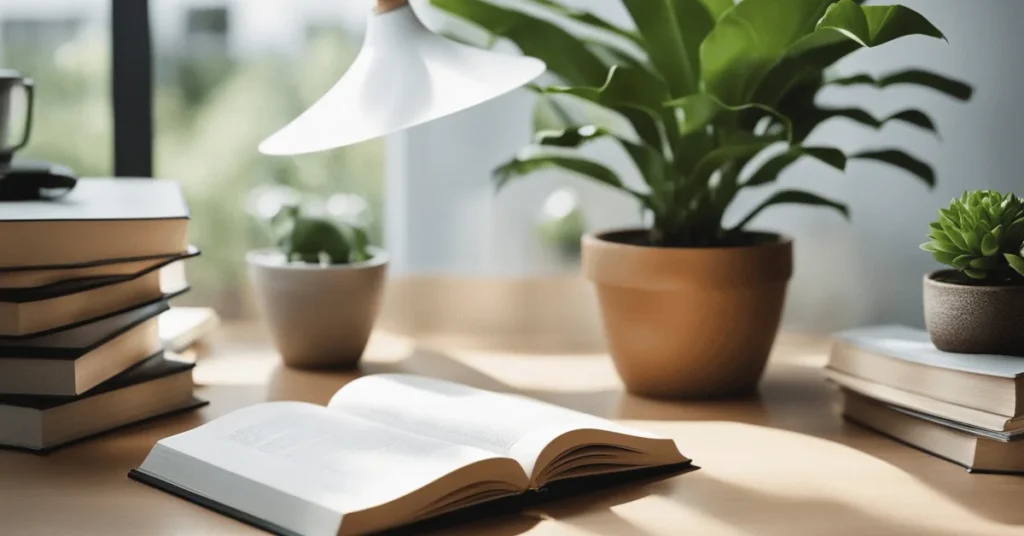
As we explore the world of minimalism, certain authors and speakers have shaped the conversation. They inspire us with a range of philosophies from Japanese aesthetics to practical decluttering methods, advocating for personal growth, mindfulness, and a calmer lifestyle. Their writings and speeches often reflect stoic meditations and the pursuit of passion through simplicity.
Inspiring Minimalist Authors
In the realm of minimalist literature, authors like Joshua Becker and Fumio Sasaki are vital to the discussion. Becker’s works, like The More of Less, guide readers towards finding the life they want by owning fewer possessions. Meanwhile, Sasaki shares his personal transformation in Goodbye, Things, highlighting the profound impact of decluttering on his happiness and sense of freedom.
The Minimalists: Joshua Fields Millburn & Ryan Nicodemus
Joshua Fields Millburn & Ryan Nicodemus, known collectively as The Minimalists, have been pivotal in promoting minimalism to the masses. They co-authored Minimalism: Live a Meaningful Life as a testament to their journey towards simplicity and the essential role of mindful consumption in fostering personal growth.
Marie Kondo and the KonMari Method
Marie Kondo, with her KonMari Method, has become synonymous with the act of tidying up. Her book, The Life-Changing Magic of Tidying Up, delves into the Japanese art of decluttering and organizing. Kondo’s method teaches us to keep only those items that “spark joy,” thus reshaping our living spaces and our relationship with material possessions.
Prominent Voices in Simplifying Life
Other influential voices include Greg McKeown, whose work Essentialism emphasizes the importance of being selective about where we focus our energy and time. Courtney Carver and Christine Platt advocate for the minimalist lifestyle in unique ways; Carver with her project “Be More with Less” and book Soulful Simplicity, and Platt through her narrative on intentional living and parenting. Additionally, Margareta Magnusson introduces the concept of ‘death cleaning’ in her book The Gentle Art of Swedish Death Cleaning, which is as much about minimalism as it is about contemplating our mortality.
Adopting Minimalism Books in Various Life Aspects

Minimalism extends beyond decluttering—it’s a holistic approach affecting numerous areas of life, from our health to relationships and career. Let’s explore how adopting a minimalist mindset can lead to a more focused and intentional lifestyle.
Minimalism and Personal Health
- Physical Health: By choosing quality over quantity, we prioritize nutritious, whole foods and simplify our diets. This reduces the overwhelm of too many choices and can lead to better overall health.
- Exercise: A minimalist approach to fitness includes activities that require minimal equipment, emphasize functional movement, and can be sustained long-term, promoting consistency and longevity in our fitness routines.
Stress Reduction Through Minimal Living
- Mindfulness: Through minimalism, we cultivate mindfulness by reducing excess stimuli, which allows us to enjoy the present moment and live more peacefully.
- Solutions for Stress: Simplifying our environments by owning fewer possessions can lead to a decluttered space, aiding in lower stress levels and providing a serene atmosphere for relaxation.
Minimalism in Relationships and Parenting
- Communication: Clear and simple communication strengthens relationships, as we can convey our intentions and needs more effectively.
- Shared Values: When we practice minimalism as a family, it promotes a shared focus on experiences over material possessions, teaching valuable lessons about living simply and intentionally to our children.
Career and Minimalism
- Productivity: In our careers, minimalism helps us eliminate non-essential tasks, enhancing our focus on important projects and fostering a more intentional work environment.
- Lifestyle Balance: By setting boundaries and choosing simplicity, we create harmony between our professional and personal lives, allowing for a more balanced lifestyle.
Minimalist Solutions in Everyday Life
- Daily Routines: Implementing minimalist principles in our daily activities ensures that our routines are structured yet flexible, designed to enhance efficiency and reduce unnecessary stress.
- Inspiration in Simplicity: By surrounding ourselves with only things that serve a purpose or bring us joy, we create an environment that inspires a focused and contented life.
Beyond the Basics
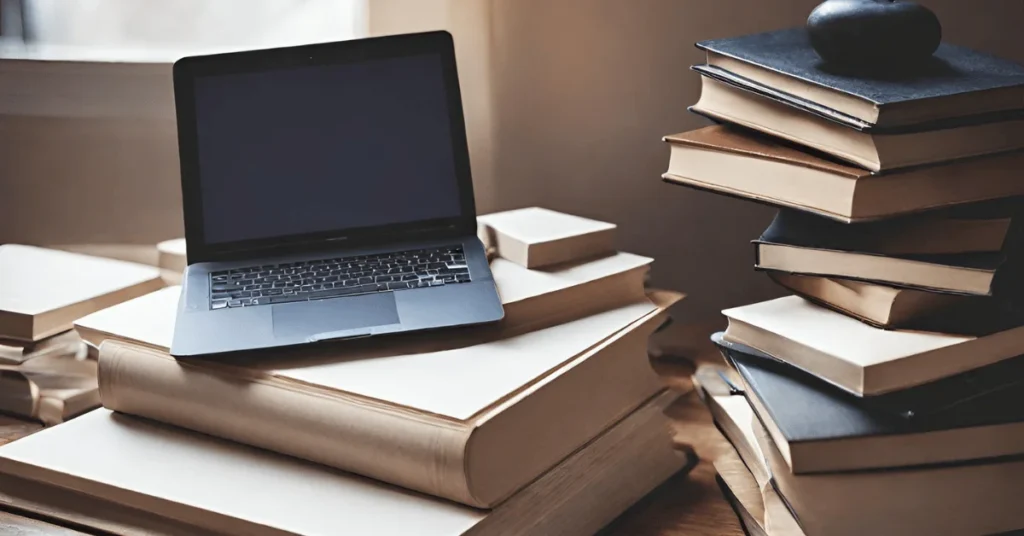
In advancing our minimalist journey, we often find ourselves exploring beyond the initial act of decluttering. We uncover the profound impact of our pursuits on personal fulfillment, cultural observation, and societal change.
Advanced Minimalist Practices
As we deepen our understanding of minimalism, we tend to adopt more sophisticated methods to sustain a minimalist lifestyle. This involves prioritizing experiences that spark joy over accumulating possessions and seeking beauty in simplicity. It’s not just about having less; it’s about ensuring that every item we possess serves a purpose and adds value to our lives.
Critical Perspectives on Consumerism
Our critical examination of consumerism sheds light on the paradox of choice—where more options can lead to less happiness. By subscribing to a minimalist philosophy, we critique the relentless push towards consumerism and its impact on our quest for a meaningful life. This involves identifying the alternative paths that diverge from mainstream consumer culture and its complexities.
Integrating Minimalism into Long-Term Goals
Embracing minimalism is not a fleeting trend but a way of life that can shape our long-term aspirations. It can support our goals by simplifying decision-making processes, reducing stress, and cultivating an environment that aligns with our profound pursuit of less. Many find that a simplified lifestyle enhances focus on personal growth and contributes to a simple living that fosters satisfaction and clarity.
The Future of the Minimalist Movement
The longevity of the minimalist movement rests on its adaptability and relevance to future generations. As societal values evolve, so too does the notion of minimalism, potentially infusing fresh perspectives into how we define and approach a meaningful life. With each generation, minimalism may take on new forms, but the core principles of intentionality and focus on essentials will likely remain steadfast.
Implementation and Challenges
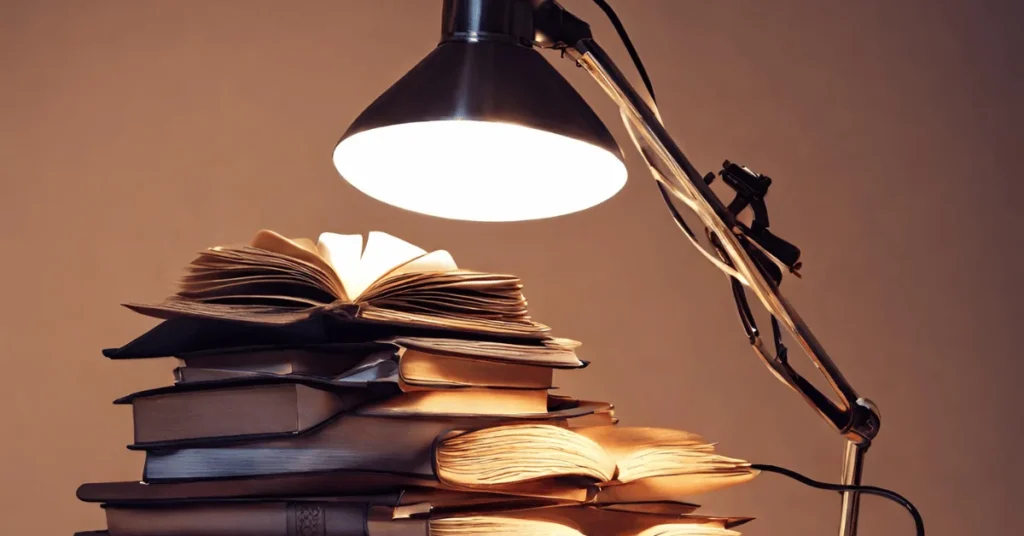
Adopting minimalism is a transformative experience that entails simplifying your life by reducing your belongings and learning to live with less. We often confront various hurdles along this path that test our resolve and ability to maintain a minimalist lifestyle. Our journey is also impacted by the digital world, which presents both challenges and avenues for minimalist practices.
Starting Your Minimalist Journey
When we start our minimalist journey, the first step is usually to declutter. Decluttering is more than just tidying up; it involves a thorough assessment of what we own and what truly adds value to our lives. We often use the Project 333 minimalist fashion challenge as a starting point, which involves selecting 33 items to wear for 3 months, helping us realize how few things we actually need.
- Strategy:
- Assess belongings category by category.
- Decide on items to keep, donate, sell, or discard.
Obstacles in Pursuing Minimalism
Overcoming the sense of overwhelm is often our biggest obstacle in pursuing minimalism. Saying goodbye to things can be emotional and challenging, as we are frequently attached to our possessions. Moreover, societal pressure to consume can derail our minimalist intentions.
- Common Obstacles:
- Emotional attachment to objects.
- Societal expectations and consumerist culture.
Sustaining a Minimalist Approach
To sustain a minimalist approach, we must live an intentional life, constantly evaluating what we bring into our space and how it serves us. The concept of living with less doesn’t stop with physical items; it extends to our commitments, relationships, and use of time, promoting a culture of quality over quantity.
- Maintenance Tips:
- Regularly review possessions and declutter.
- Focus on intentionality in all life areas.
Minimalism in the Digital Age
In the digital age, we face a unique challenge: digital clutter. Digital minimalism encourages us to analyze our technology use and eliminate digital noise. By curating our digital presence, we can embrace minimalist principles and reduce online distractions that impede our productivity and peace of mind.
- Digital Strategies:
- Unsubscribe from unnecessary emails.
- Streamline digital files and apps for efficiency.
Cultural and Global Perspectives
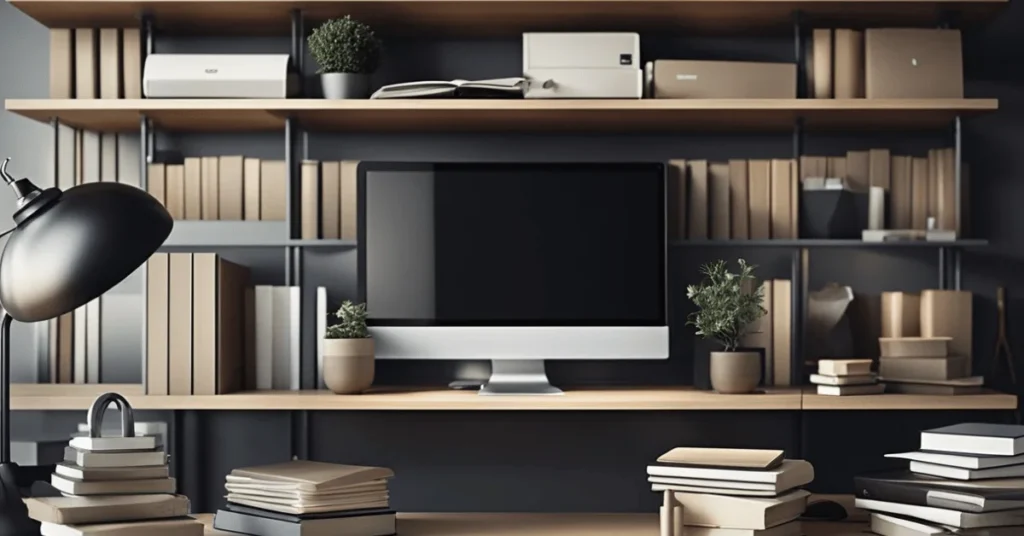
As we explore minimalism, it becomes evident that its influence and practice vary across cultures. The movement has grown beyond personal aesthetics to encompass a philosophy that resonates globally, advocating for greater mindfulness in consumption and a sustainable approach to living.
Minimalism Across Cultures
Japanese minimalism, often aligned with Zen philosophy, has been central in shaping the global understanding of minimalism. It emphasizes beauty in simplicity and functionality, a principle permeating through Japanese aesthetics for centuries. One can observe the profound influence of this through the popularity of concepts like “spark joy,” a criterion introduced by Marie Kondo for decluttering and organizing one’s space.
In contrast, Western minimalism often emerged as an alternative to rampant consumerism. Here, minimalism is less about traditional aesthetics and more about a conscious choice to prioritize experiences over possessions. This cultural exchange shows how diverse societies interpret minimalism and integrate its principles into their daily lives.
International Trends in Minimalism
Minimalism as a movement has experienced a surge in popularity on an international scale. For instance:
- In Scandinavian countries, minimalism ties with the concept of ‘hygge’, emphasizing coziness and simple living.
- Urban areas across the globe see a trend towards smaller, more minimalist living spaces due to both economic necessity and a philosophical shift.
- Social media has played a pivotal role in the international spread of minimalism, with lifestyle influencers showcasing how a minimalist approach can lead to a more meaningful and focused life.
These trends manifest themselves in various forms, from architecture and fashion to art and design, reflecting the movement’s versatility and global appeal.
Environmental Impact and Sustainability
Our adoption of a minimalist philosophy can significantly affect environmental sustainability. Practices such as the zero waste home, with its emphasis on reducing household waste to the bare minimum, are gaining traction. This practice aligns with the broader minimalist ethos by discouraging consumerism and promoting an eco-friendly lifestyle.
| Minimalist Practice | Environmental Benefit |
|---|---|
| Buying less | Reduces waste and resource consumption |
| Choosing quality | Encourages longer product lifespans |
| Mindful consumption | Lessens the demand for mass production |
By applying minimalist principles to our consumption habits, we contribute to a sustainable and environmentally responsible culture, addressing critical global challenges such as climate change and resource depletion. Through minimalism, we establish a more harmonious relationship with our environment, demonstrating a commitment to stewardship and sustainability.
Frequently Asked Questions
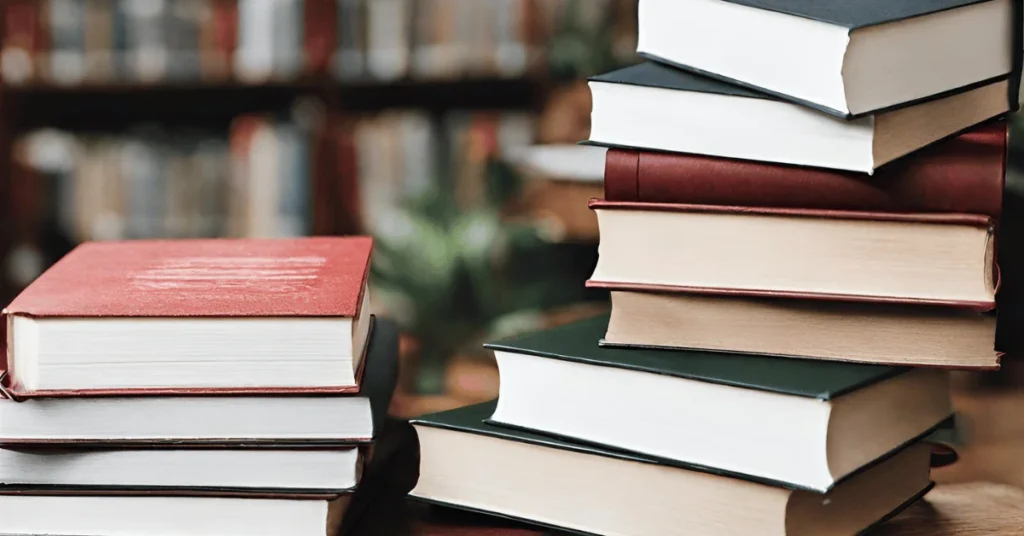
What are the top recommended minimalism books for embracing a minimalist lifestyle?
There are definitely two essential minimalism books to name: “The Life-Changing Magic of Tidying Up” by Marie Kondo catalyzed a decluttering craze with its simple yet profound message. “Goodbye, Things” by Fumio Sasaki offers insight into the personal benefits of owning less.
How can digital minimalism books help manage our technology consumption?
Minimalism books like “Digital Minimalism” by Cal Newport provide strategies for optimizing technology use to focus on what’s most valuable, fostering a balanced and intentional relationship with digital tools.
Can you suggest some authoritative minimalism books on minimalist design and art?
“Minimalism: Art and Polemics in the Sixties” by James Meyer gives a historical context to the minimalism movement in art. For design, one of the prominent minimalism books is “Less is More: The History of Minimalist Design” by Phaidon, which explores minimalism across various design disciplines.
Which minimalism books by The Minimalists should someone read first for a clear understanding?
To start with The Minimalists, “Everything That Remains” is a memoir that walks you through their transition to minimalism. “Minimalism: Live a Meaningful Life” is their guide on applying minimalist principles to life’s various aspects.
Are there books that combine teachings on minimalism with strategies for decluttering?
Yes, minimalism books like “The Joy of Less” by Francine Jay couples the philosophy of minimalism with practical decluttering techniques. “Essentialism: The Disciplined Pursuit of Less” by Greg McKeown also aligns well with this approach, focusing on prioritizing what’s essential.
How has the concept of minimalism evolved in recent literature?
Recent minimalism books, like “The Longing for Less” by Kyle Chayka, explore how minimalism has permeated culture beyond just personal belongings, influencing areas such as music, architecture, and lifestyle. This evolution is indicative of a growing desire for simplicity and intentionality in various life facets.
We’ve explored the world of minimalism books, but now it’s your turn to share.
Have a favorite minimalist book or insights on the topic? Share your thoughts and join the conversation in the comments below!


